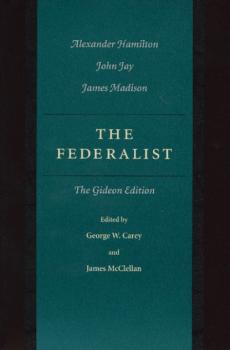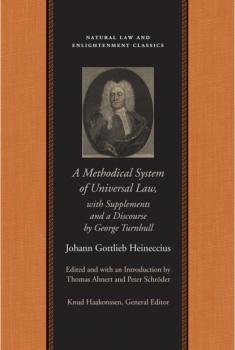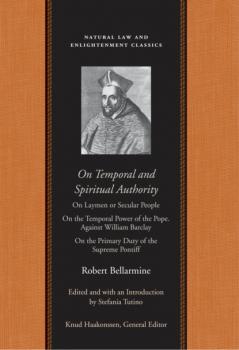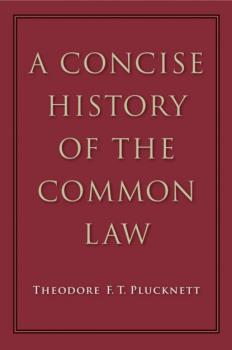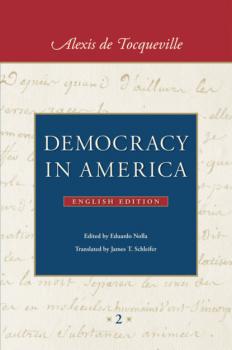Ingram
Все книги издательства IngramThe American Republic
Many reference works offer compilations of critical documents covering individual liberty, local autonomy, constitutional order, and other issues that helped to shape the American political tradition. Yet few of these works are available in a form suitable for classroom use, and traditional textbooks give short shrift to these important issues.The American Republic overcomes that knowleEAe gap by providing, in a single volume, critical, original documents revealing the character of American discourse on the nature and importance of local government, the purposes of federal union, and the role of religion and tradition in forming America’s drive for liberty.By bringing together key original documents and other writings that explain cultural, religious, and historical concerns, this volume gives students, teachers, and general readers an effective way to begin examining the diversity of issues and influences that characterize American history.The result unquestionably leads to a deeper and more thorough understanding of America’s political, institutional, and cultural continuity and change.Bruce Frohnen is Associate Professor of Law at Ohio Northern University College of Law.Please note: This title is available as an ebook for purchase on Amazon, Barnes and Noble, and iTunes.
The American Commonwealth
In Democracy in America (1835) the Frenchman Alexis de Tocqueville interpreted American society through the lens of democratic political theory. A half-century later the Scotsman James Bryce examined “the institutions and the people of America as they are.” Bryce presented his findings in The American Commonwealth, first published in London in three volumes in 1888. This new Liberty Fund two-volume edition is based on the updated third edition of 1941, which encompassed all the changes, corrections, and additions that Bryce entered into the previous editions. Its expanded appendix includes Bryce’s 1887 essay, “The Predictions of Hamilton and De Tocqueville,” and contemporaneous (1889) reviews of The American Commonwealth by Woodrow Wilson and Lord Acton.The great merit of Bryce’s work is that it is based on close observation of the actual operation of American political institutions, including political parties and municipal and state governments. Consequently, Bryce provides what Professor Gary McDowell describes as “a grand atlas of American politics and society.” Indeed, Bryce was able to discern enduring characteristics of American society and politics. Therefore, as Robert Nisbet has written, “we still go to Bryce for piquant and cogent answers to the questions of why great men are not chosen presidents and why the best men do not go into politics in America.”James Bryce (1838–1922) was a British jurist, historian, and statesman. From 1907 to 1913 he was England’s ambassador to the United States.Gary L. McDowell is the Tyler Haynes Interdisciplinary Professor of Leadership Studies, Political Science, and Law at the University of Richmond in Virginia. From 1992 to 2003 he was the Director of the Institute of United States Studies in the University of London. Please note: This title is available as an ebook for purchase on Amazon, Barnes and Noble, and iTunes.
The Federalist
The Federalist, by Alexander Hamilton, James Madison, and John Jay, constitutes a text central to the American political tradition. Written and published in newspapers in 1787 and 1788 to explain and promote ratification of the proposed Constitution for the United States, which were then bound by the Articles of Confederation, The Federalist remains of singular importance to students of liberty around the world.George W. Carey was Professor of Government at Georgetown University and editor of The Political Science Reviewer.James McClellan (1937–2005) was James Bryce Visiting Fellow in American Studies at the Institute of United States Studies, University of London. Please note: This title is available as an ebook for purchase on Amazon, Barnes and Noble, and iTunes.
A Methodical System of Universal Law
George Turnbull’s eighteenth-century translation of A Methodical System of Universal Law was his major effort to convey continental natural law to Britain, thus making Heineccius’s natural jurisprudence more accessible to English-speaking audiences. Turnbull includes extensive comments on Heineccius’s text and also presents his own philosophical work, A Discourse upon the Nature and Origin of Moral and Civil Laws.Johann Gottlieb Heineccius (1681–1741) studied theology at Leipzig and later law at the newly founded (1694) University of Halle, where he became a pupil of Christian Thomasius.Thomas Ahnert is a Lecturer in History at the University of Edinburgh, Scotland.Peter Schröder is Senior Lecturer in the History Department at University College, London. Please note: This title is available as an ebook for purchase on Amazon, Barnes and Noble, and iTunes.
On Temporal and Spiritual Authority
Robert Bellarmine was one of the most original and influential political theorists of his time. His writings present coherent definitions of the nature and aim of temporal authority and its relationship to spiritual authority.This fresh translation will be interesting to a wide readership of both scholars of political thought and the educated general public.Robert Bellarmine (1542–1621) was a Jesuit cardinal.Stefania Tutino is a Professor of History and Religious Studies, University of California, Santa Barbara. Please note: This title is available as an ebook for purchase on Amazon, Barnes and Noble, and iTunes.
In Pursuit: Of Happiness and Good Government
Respected author, scholar, and columnist Charles Murray has long challenged accepted notions of public and social policy issues. In this volume, originally published in 1988, Murray presents a persuasive and practical argument that reconsiders commonly held beliefs of what constitutes success in social policy by examining the scope of government and its role in people’s pursuit of happiness.In Pursuit: Of Happiness and Good Government begins by examining James Madison’s statement: “A good government implies two things; first, fidelity to the object of government, which is the happiness of the people; secondly, a knowleEAe of the means by which that object can best be attained.” Murray exhibits a thoughtful, accessible writing style as he considers such basic, important questions as whether individual efforts or government reform should be responsible for dealing with society’s problems. Drawing from his minimalist-government viewpoint, Murray proposes that government not try to force happiness on the people with federal policies or programs but, rather, that it provide conditions that enable people to pursue happiness on their own.Murray also proposes that the pursuit of happiness be used as a framework for analyzing the efficacy of public policy, and he comes to the conclusion that Jeffersonian democracy is still the best way to run society, even today’s complex society.Charles Murray is the W. H. Brady Scholar at the American Enterprise Institute for Public Policy Research. He has written numerous books, including Coming Apart, Losing Ground, Real Education, and Human Accomplishment. He is perhaps best known for coauthoring the 1994 New York Times bestseller The Bell Curve with the late Richard J. Herrnstein. Please note: This title is available as an ebook for purchase on Amazon, Barnes and Noble, and iTunes.
History of the Rise, Progress, and Termination of the American Revolution
Mercy Otis Warren has been described as perhaps the most formidable female intellectual in eighteenth-century America. This work (in the first new edition since 1805) is an exciting and comprehensive study of the events of the American Revolution, from the Stamp Act Crisis of 1765 through the ratification of the Constitution in 1788–1789.Steeped in the classical, republican tradition, Warren was a strong proponent of the American Revolution. She was also suspicious of the newly emerging commercial republic of the 1780s and hostile to the Constitution from an Anti-Federalist perspective, a position that gave her history some notoriety.Lester H. Cohen taught history and American Studies at Purdue University. Please note: This title is available as an ebook for purchase on Amazon, Barnes and Noble, and iTunes.
A Concise History of the Common Law
As always during its long history, English common law, upon which American law is based, has had to defend itself against the challenge of civil law’s clarity and traditions. That challenge to our common-law heritage remains today. To that end, Liberty Fund now makes available a clear and candid discussion of common law. A Concise History of the Common Law provides a source for common-law understanding of individual rights, not in theory only, but protected through the confusing and messy evolution of courts and their administration as they struggled to resolve real problems. Plucknett’s seminal work is intended to convey a sense of historical development—not to serve merely as a work of reference.The first half of the book is a historical introduction to the study of law. Plucknett discusses the conditions in political, economic, social, and religious thought that have contributed to the genesis of law. This section is a brief but astoundingly full introduction to the study of law.The second half of the book consists of chapters introducing the reader to the history of some of the main divisions of law, such as criminal, tort, property, contract, and succession. These topics are treated with careful exposition so that the book will be of interest to those just embarking on their quest in legal history while still providing enough substantial information, references, and footnotes to make it meaningful for the well-versed legal history reader.Theodore F. T. Plucknett (1897–1965) was an English legal historian. At twenty-six, he was appointed by Roscoe Pound as professor of legal history at Harvard Law School. Please note: This title is available as an ebook for purchase on Amazon, Barnes and Noble, and iTunes.
Democracy in America
In 1831, Alexis de Tocqueville and Gustave de Beaumont spent nine months in the U.S. studying American prisons on behalf of the French government. They investigated not just the prison system but indeed every aspect of American public and private life—the political, economic, religious, cultural, and above all the social life of the young nation. From Tocqueville’s copious notes came Democracy in America.This English-only edition of Democracy in America features Eduardo Nolla’s incisive notes to James Schleifer’s English translation of the French text, with extensive reference to early outlines, drafts, manuscript variants, marginalia, unpublished fragments, and other materials: “This new Democracy is not only the one that Tocqueville presented to the reader of 1835, then to the reader of 1840. . . the reader will see how Tocqueville proceeded with the elaboration of the main ideas of this book.”Alexis de Tocqueville (1805–1859) was a French writer and politician.Eduardo Nolla is a Professor at the Universidad San Pablo-CEU, Madrid.James T. Schleifer is emeritus Dean of the Library and Professor of History at the College of New Rochelle and has been a visiting lecturer at Yale University.Please note: This title is available as an ebook for purchase on Amazon, Barnes and Noble, and iTunes.
The Representation of Business in English Literature
In The Representation of Business in English Literature, five scholars of different periods of English literature produce original essays on how business and businesspeople have been portrayed by novelists, starting in the eighteenth century and continuing to the end of the twentieth century. The contributors to Representation help readers understand the partiality of the various writers and, in so doing, explore the issue of what determines public opinion about business.Arthur Pollard (1922–2001) was Professor Emeritus of English at the University of Hull in Hull, East Yorkshire, England.John Blundell is General Director of the Institute of Economic Affairs, London. Please note: This title is available as an ebook for purchase on Amazon, Barnes and Noble, and iTunes.


